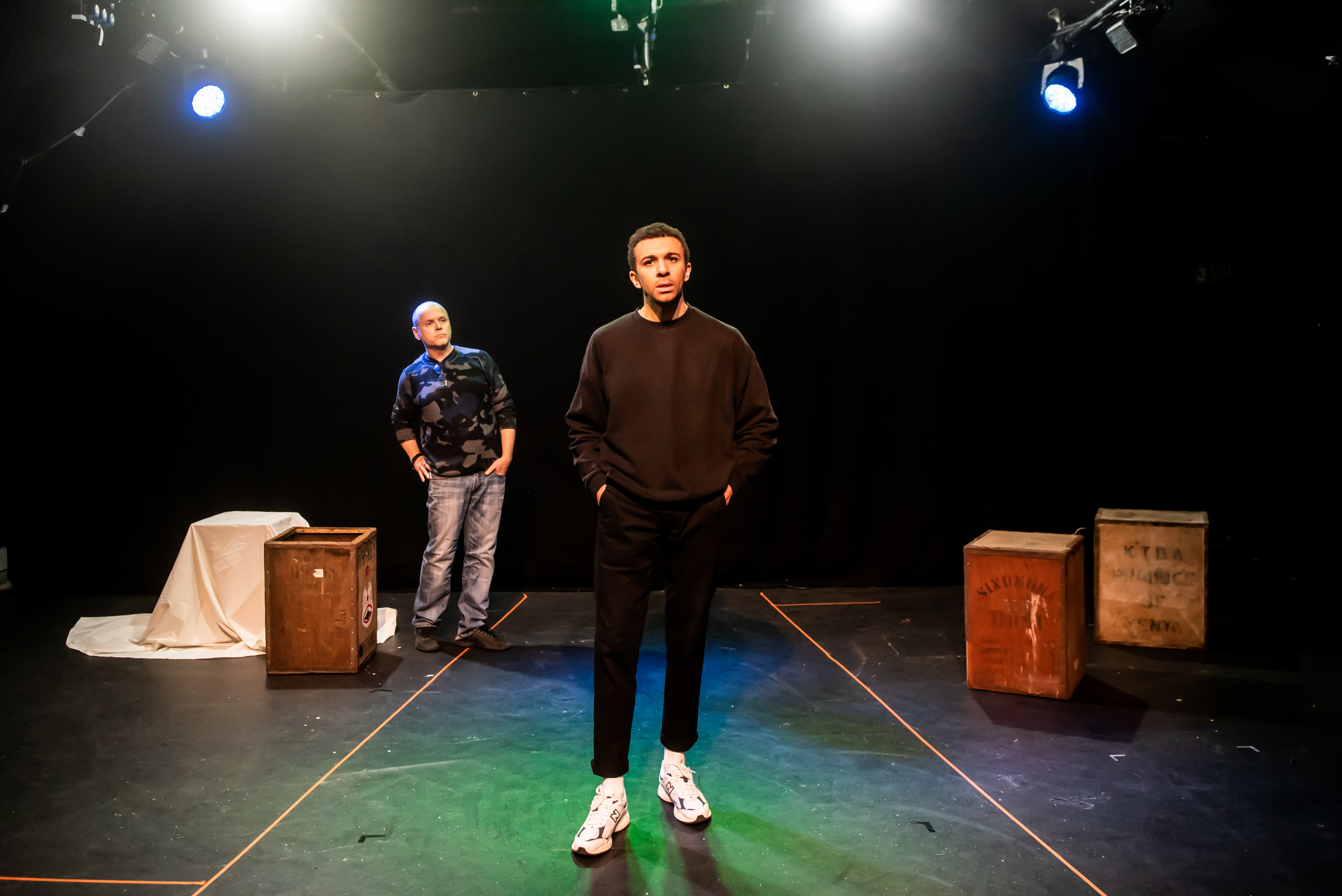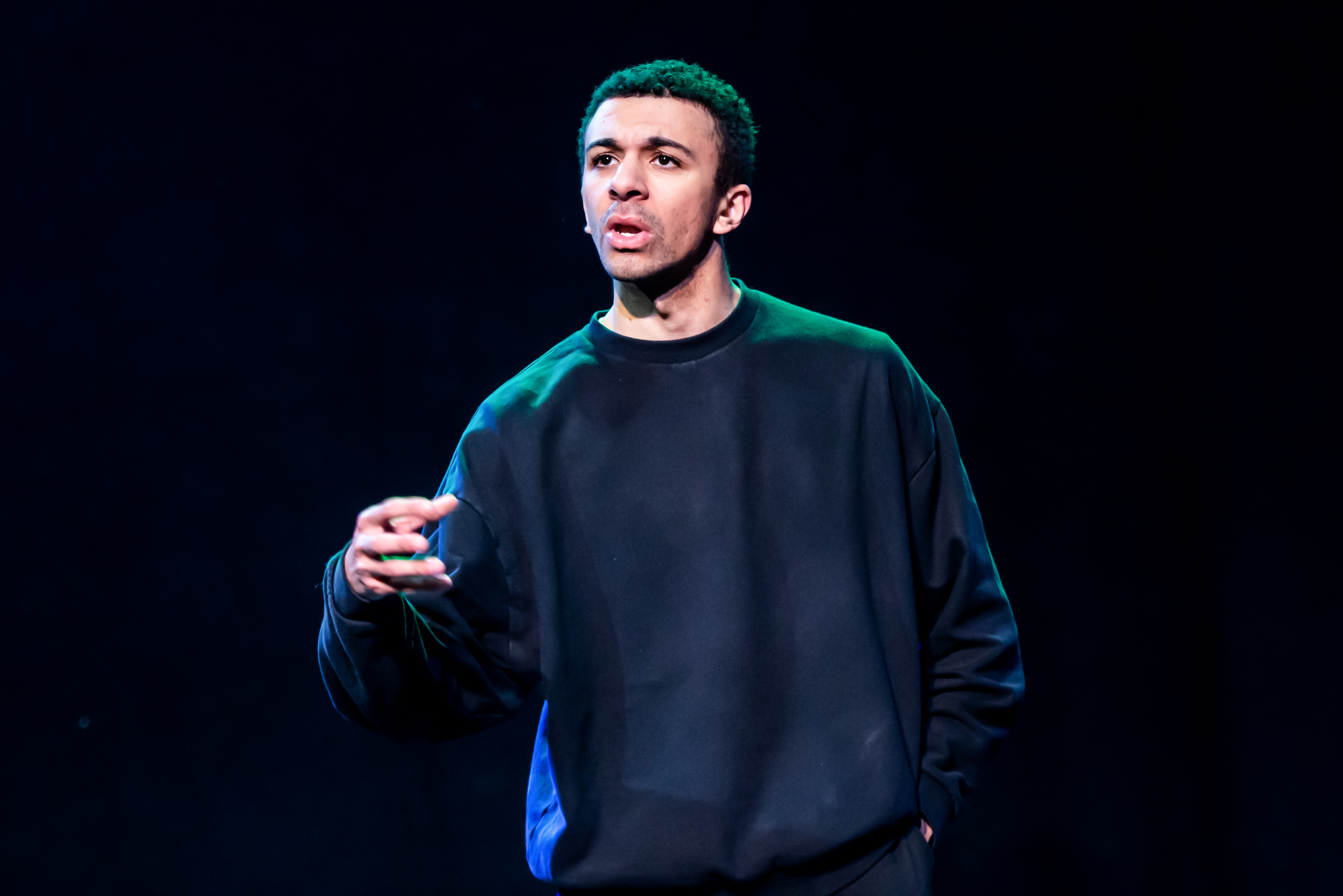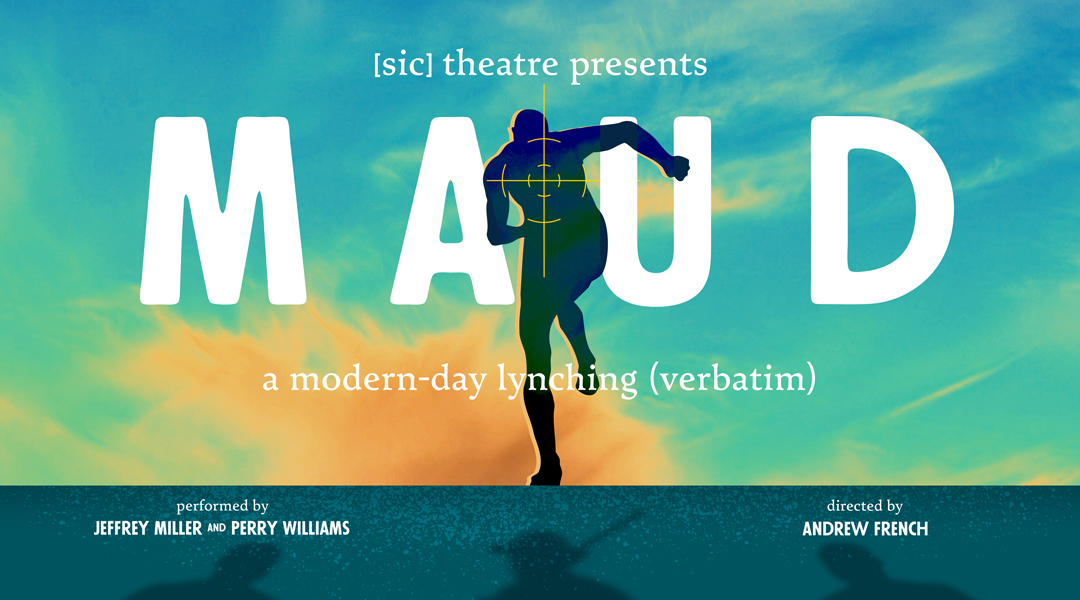Maud: In a new play about a modern-day lynching, truth trumps fiction
The play uses verbatim accounts from the contentious trial that followed the racially-motivated murder of Ahmaud Arbery.
When Ahmaud Arbery was shot dead in February 2020, the pain felt by Black communities around the world was visceral and familiar. The details of his death were horrifying, harking back to pre-Civil Rights Movement America - the era of lynchings.
Arbrey, a 25-year-old Black man, was out jogging when he was chased by a trio of white men through a residential neighbourhood in South Georgia. After a five-minute pursuit, Arbrey was fatally shot three times, at close range, with a shotgun.
A video of his murder surfaced in May 2020, mere weeks before George Floyd was killed at the hands of the police. His death contributed to the growth of the Black Lives Matter movement and the worldwide protests demanding racial justice. The trial of his accused killers sparked questions about policing - and about a controversial, archaic Georgia statute that empowered private citizens to detain perceived lawbreakers. (The statute was weakened and a new hate crimes law passed in the aftermath of Arbery’s killing.)
Maud, which debuts at London’s Vault Festival this week, follows the trial of the three white defendants. Every word in the script is verbatim, in an attempt to get as close as possible to the truth of what happened.

(Credit: Lidia Crisafulli)
“There is a question that has plagued me for a great deal of my life. It is - how, how, how does this keep happening?” says Jeff Miller, who created the show. “I think the nature of exploring that question is incredibly important. Who are we as people? What role do we, as neighbours, as a society, play in perpetuating conditions that allow things like this to happen? As an American, it's a question that haunts me.”
Despite the protests, the pledges, the reading lists and the renamed squares, this does keep happening, over and over again. Tyre Nichols died three days after he was beaten and assaulted by five police officers in Memphis just last month. There is a risk of desensitisation. That the compounding of racial trauma on racial trauma causes a saturation that makes people apathetic, makes them look away.
For Perry Williams, who co-stars in Maud alongside Miller, the process of putting this work out in the world feels like a way to refocus. He says it was important that they approach this horribly familiar event in an unfamiliar way, blending past with present, sweeping through different decades and recontextualising moments in history. He also hopes it presents an opportunity for catharsis.
“I wanted there to be a way for this to be uplifting,” Williams says.
“The only way you can achieve that is if there is hope. Because otherwise, telling stories like this just becomes retraumatising.
“At every stage of the process, it has always been really important for us to consider the impact on our Black audience. Because I think, personally, that is who this show is for.”

(Credit: Lidia Crisafulli)
After a single-week run in London, the small company will return to America, where they face the daunting task of performing the play for Arbery’s family. “We have kept them in mind throughout,” says Miller. “How will they feel when they watch it? How will they receive it? It has been incredibly challenging, but also completely necessary to think about that aspect of this work.”
Depicting real, contemporaneous traumatic events in an art form feted for creative freedom, subjectivity and critical response is invariably tricky. There is a risk of getting things wrong, unduly upsetting victims and survivors, and letting ego or ambition overtake the process. Williams says that, for these reasons, creative licence had to “take a backseat” in the production.
“There is a sense of duty when you're producing something that concerns real people,” he explains. “You have to be respectful, and I don't want to sound like I'm exaggerating, but I do think you have to be a little reverential. Of the situation, of the people involved.
"As theatremakers, as artists, you have to be conscious of the experience you're inviting your audience into.
"You have to take care of your audience. Yes, you want to make work that is right on the line - that is often the best kind of work - but there is a line.”
The killings of Ahmaud Arbrey, George Floyd, Breonna Taylor and Tyree Nichols all happened in America. But here in the UK, the Met Police shot and killed Chris Kaba, an unarmed Black man, in September last year. New data, released just this week, revealed that Black people in the UK are seven times more likely to die following police contact. The same report found that no officers involved in such cases have ever been prosecuted for racism.

Maud will debut at London's Vault Festival this February.
“I spent a week in America over the summer, and on the second day someone shouted the N-word at me,” says Williams, a RADA graduate from London. “Experiences of racism in the US are different to the UK. But that doesn’t mean racism doesn’t exist in the UK. Far from it. It’s all on a spectrum, right? Here, it’s more insidious, more subtle, more obscure.
“There are so many parts of this story that will resonate with a British audience, particularly at a systemic level where we are looking at issues that exist within institutions like the police.”
Williams points to a James Baldwin speech that he encountered during his research for the play. He paraphrases a quote that he says manages to perfectly distil the issue they are trying to convey - and why their message has the power to transcend the Atlantic: “It is this idea that experiencing suffering is one thing, but worse than that is when you see the cycle repeating in your children, or a new generation. This pain and frustration of being unable to break the cycle is universal. I don't think that is something that only applies to African Americans.”
Maud will run as part of VAULT Festival, The Crescent, 21– 25 February 2023 - tickets from £13
The Lead is now on Substack.
Become a Member, and get our most groundbreaking content first. Become a Founder, and join the newsroom’s internal conversation - meet the writers, the editors and more.

